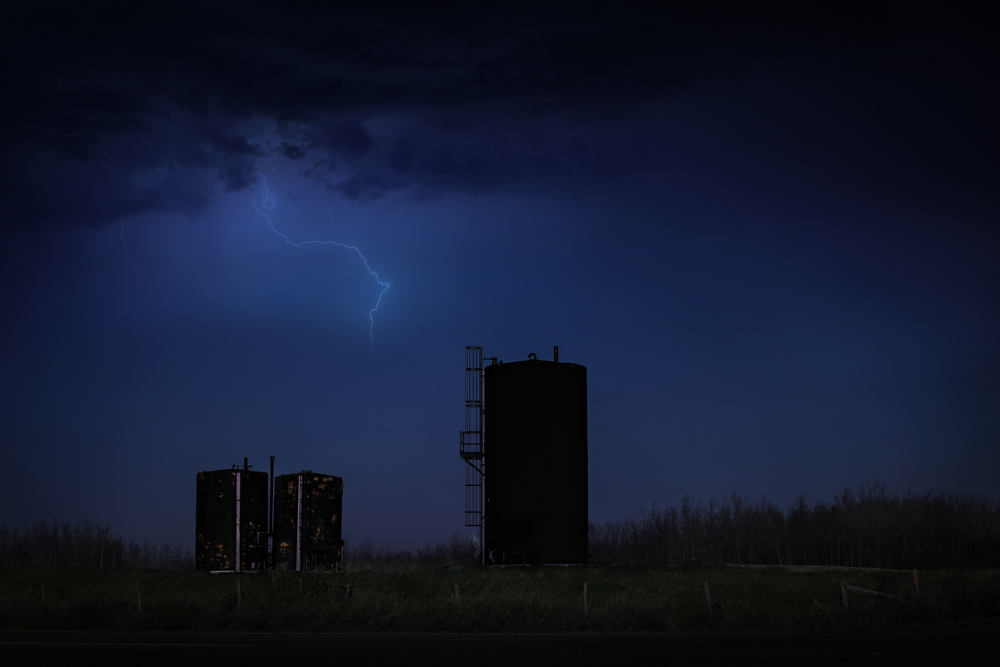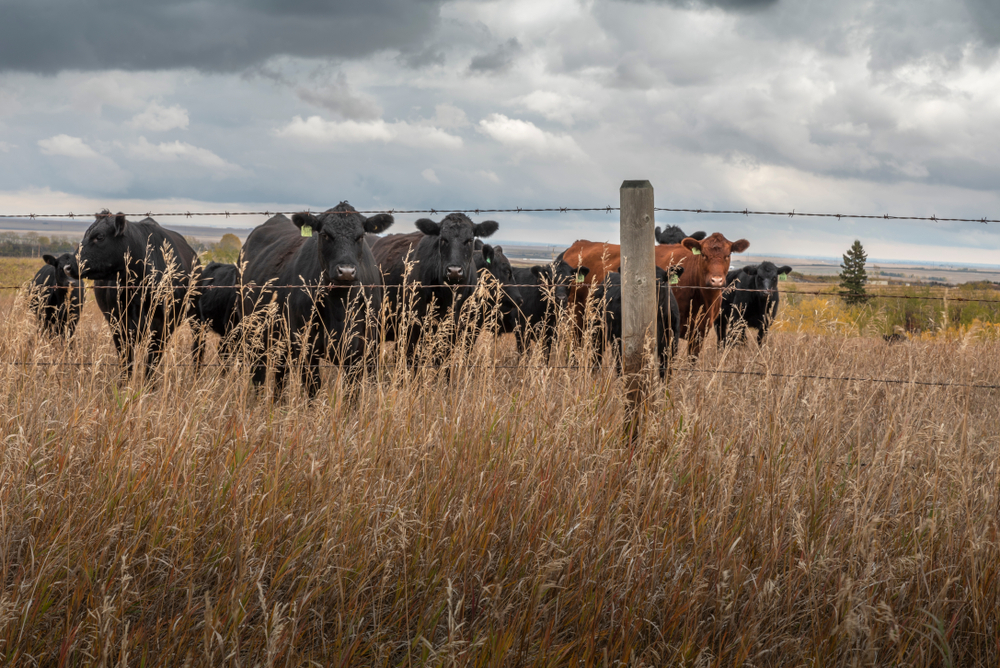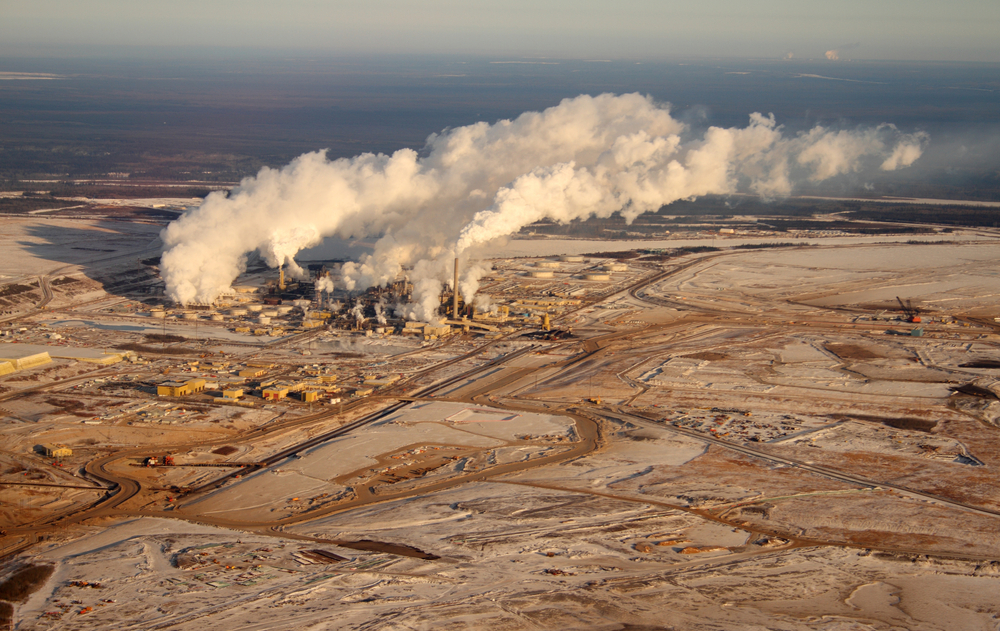The Alberta election campaign is roaring into its last days with the province’s polarized politicians still focusing on the symptoms of what ails the province instead of root causes — mainly the volatility of oil prices in a disintegrating global economy.
The dominant rhetoric has predictably focused on economy, jobs and pipelines.
But there are bigger issues — the risks of global oil price volatility; the need for economic diversification; the growing fiscal pressure on oil-producing states; the cost of climate change; the need to promote a leaner and more local economy as opposed to the boom-and-bust one; Alberta’s failure to collect its fair share of profits from bitumen production; and, hanging over them all, the risk of economic collapse.
Here, then, are 11 oil-soaked and unaddressed issues for an angry and volatile electorate to consider in the voting booth on Tuesday. Issues that the Alberta media, largely a closed loop of petroleum bombast, have often avoided or ignored.
1. The long-term collapse of government oil revenues
Almost every day Alberta’s politicians say they have to export more oil to boost government revenues needed to pave more roads and build more schools.
But oil and gas revenues have gone from a gush to a trickle.
Between 2000 and 2017, annual revenue from royalties collapsed by 59 per cent — $9.5 billion — while oil production rose by 112 per cent during the same period.
The Alberta government has made it a policy to slash the royalties it takes in for the sale of the province’s resources. In 2000, corporations paid royalties equal to 19.5 per cent of the value of oil and gas produced.
By 2017, that had been cut to 5.1 per cent, among the lowest in North America, even though major producers like Imperial Oil, Suncor and Husky continue to make robust profits in the oil sands because they upgrade and refine bitumen into gasoline and jet fuel.
2. Alberta’s lean fiscal future
Most petro states, from Russia to Texas have low tax regimes because they relied on oil and gas revenues. As those revenues fall, and oil and gas prices become more volatile, the states can’t balance their budgets.
Louisiana, a major U.S. oil-dependent state, has done such a poor job of collecting and saving revenue from oil production that it introduced a sales tax rate of 4.45 per cent in 2016 to avoid a “fiscal cliff.”
Alberta has no sales tax, even though many economists agree that it’s unlikely the government will ever be able to balance its budget without one. Only the Alberta Liberal Party has dared to propose a sales tax.
Ten years ago, the oil and gas sector generated 30 per cent of the government’s revenue. Today that figure has dropped to 10.5 per cent.
Albertans are facing the prospect of deep government spending cuts, and the prospect of either higher taxes or significant reductions in government services.
3. The province’s focus on the wrong markets
The United States, not Asia, remains the largest market for heavy oil, because its refineries invested in the upgrades necessary to process the low-grade bitumen. Companies in Alberta and Canada chose not to make these strategic investments.
U.S. refineries process about five million barrels a day of heavy oil. Heavy oil supplies from Mexico and Venezuela are declining.
As a result, the importance of Canadian heavy oil has increased in U.S. markets. That reality makes Enbridge’s Line 3 and TransCanada’s Keystone pipeline — not the Trans Mountain expansion — the most important infrastructure for Alberta.
4. The coming cleanup cost crisis
Alberta has no real plan for addressing a hidden fiscal crisis: unfunded oil and gas liabilities worth at least $260 billion. The province, for example, has only $200 million in security deposits to cover the abandonment and reclamation of hundreds of thousands of wells.
If not properly sealed and reclaimed, these wells can leak methane, carbon dioxide or radon into the groundwater and atmosphere.
Other unfunded liabilities include 400,000 kilometres of pipelines, inactive gas plants and oil sands mines and 200 square kilometres of bitumen tailing ponds. These liabilities easily exceed the total revenue the province will earn from hydrocarbons over the next 50 years.
5. The inability to manage production
Overproduction of both bitumen from Alberta and tight oil from Texas helped precipitate the 2014 oil price crash. That put thousands of Albertans out of work and emptied Calgary’s office towers.
Unless Alberta learns how to curtail future production or add more value to bitumen, the province will be increasingly vulnerable to oil price swings and shocks.
UCLA political scientist Michael Ross notes that oil-exporting states have become the most highly specialized states in the global economy “and hence the most vulnerable to large price shocks.”

6. The role Alberta’s policies play in hastening global warming
Climate change is as real as the province’s anxiety about oil price volatility.
The recent Canada’s Changing Climate Report mentions Alberta more than 60 times. In 2013, extreme rainfall caused a flood that cost the province billions. In 2016, extreme drought caused a massive wildfire in Fort McMurray costing the province billions more.
Scientists forecast more extreme events. Climate change will increase fire risk, fire spread and the length of the burning season.
“Canada’s rate of surface warming is more than twice the global rate,” the report noted, while emissions reductions have been stalled by political inertia. Albertans — and all Canadians — can expect the security of their food and water supplies to decline.
7. The real risk of collapse
Oil-producing states can and do collapse. Venezuela was once the Alberta of Latin America. Rich. Comfortable. Stable. Democratic.
Yet oil revenue hollowed out the economy. Venezuela, flush with oil cash, abandoned local food sustainability in favour of imports, and government subsidies made gasoline prices the lowest in the world.
During the 1990s, the country, which sits on the world’s largest oil reserves, exported 3.5 million barrels a day. Today the country exports 1.3 million barrels a day, largely to pay off debts to China and Russia. (Orinoco heavy oil, like that of Alberta’s oil sands, requires large amounts of heat and energy to extract.)
Venezuela used rising oil revenue to improve standards of living. Now declining oil revenues mean those measures can’t be maintained. It didn’t raise taxes or create a wealth fund. It failed to reinvest in oil production, diversify its economy or acknowledge climate change as a risk.
As expenditures exceeded revenues, the nation descended into economic and political chaos. Millions of Venezuelans have now fled the country, and the state can no longer maintain electrical production (climate change has played havoc with the nation’s dams) or health services.
British journalist Nafeez Ahmed argues that “Whatever their ultimate causes, the horrifying collapse of Venezuela heralds insights into a possible future for today’s major oil producers .”
According to the International Energy Agency (IEA), a conservative group, almost every major oil-producing state faces a tempestuous future.
Last year the IEA estimated that if low oil prices continued, net income from oil and gas would never recover to its 2010-15 levels, “leading to a cumulative $7-trillion reduction over the period to 2040” in government revenues for the world’s petro states.
The IEA recommended that oil-exporting states invest heavily in renewables, end all fossil fuel consumption subsidies and invest in adding value to hydrocarbons.
Saudi Arabia, for example, is building more refineries, while Russia is investing in petrochemicals. These downstream investments allow oil exporters to extract more value from hydrocarbons and promote a kind of diversification.
The IEA report warned that if oil-producing states don’t wean themselves off oil revenue, many will face financial ruin.
8. Alberta’s failure to save for a rainy day
Most oil-exporting jurisdictions have sovereign wealth funds to manage windfall profits and to prepare for rainy days. Saudi Arabia has a $250-billion fund, and Russia has a $66-billion fund. Norway, of course, has a $1-trillion fund.
The funds recognize that governments are selling off a non-renewable resource and some of the money needs to be saved for when the oil and gas are gone.
But Alberta’s Heritage Savings Trust Fund has a total value of just $17 billion, as successive Conservative governments chose to divert oil and gas revenue to balance budgets.
9. The myth of the economic value of the oil and gas industry
Oil dominates policy and politics in Alberta, but it does not represent the bulk of economic activity. The oil sector accounts for 24 per cent of the province’s GDP. The rest of the economy, which gets scant attention in the media, accounts for 76 per cent.
Provided they have access to clean water, Alberta’s farms and ranches still represent Alberta’s most sustainable future.

10. The coming disruptive shift to renewable energy
Gail Tverberg, an actuary who has focused on energy issues, warns it is unlikely that the transition to renewable energy will be smooth or comfortable.
Tverberg, author of the respected blog Our Finite World, notes that “history shows disturbing outcomes if energy consumption per capita declines.”
That’s precisely what’s needed to respond to climate change. But the historical record shows that when nations dramatically reduce their energy use (as Alberta did after the 2014 price collapse), unemployment, debt and financial stress increase.
High oil prices clobbered Spain and Greece between 2007 and 2014 because of their oil-dependent tourist economies. Energy consumption in both countries dropped by nearly 20 per cent. Both nations experienced high unemployment and required staggering financial bailouts.
Since 2006, Syria’s energy use per capita has fallen by 55 per cent due to depleted oil fields and civil war as the country has collapsed.
Given these examples, Tverberg wonders about the feasibility of a rapid abandonment of fossil fuels and suggests we may cling to their use until the resource is exhausted.
“If fossil fuels leave us, the result could be the collapse of financial systems and governments,” she warns.
11. Alberta’s boom-and-bust, get-rich-quick culture
The U.S. author Wallace Stegner once observed that the West consisted of two kinds of characters: stickers and boomers.
Alberta’s culture has attracted a population of boomers, people devoted to cashing in quickly during the good years.
The oil boomers come for high salaries and want to make a killing. Greed, money, property and power propel boomer culture. In contrast, stickers don’t dream about Easy Street. They are prepared to settle in, build a future, and love the life they have made. Their focus is on making a living.
The social critic Wendell Berry notes that stickers “are motivated by affection, by such love for a place and its life that they want to preserve it and remain in it.”
Alberta needs a cultural transformation from a province of boomers to a province of stickers. Stickers offer long-term hope while boomers invite ruin. ![]()
















Tyee Commenting Guidelines
Comments that violate guidelines risk being deleted, and violations may result in a temporary or permanent user ban. Maintain the spirit of good conversation to stay in the discussion.
*Please note The Tyee is not a forum for spreading misinformation about COVID-19, denying its existence or minimizing its risk to public health.
Do:
Do not: